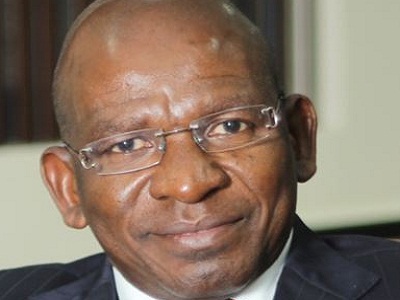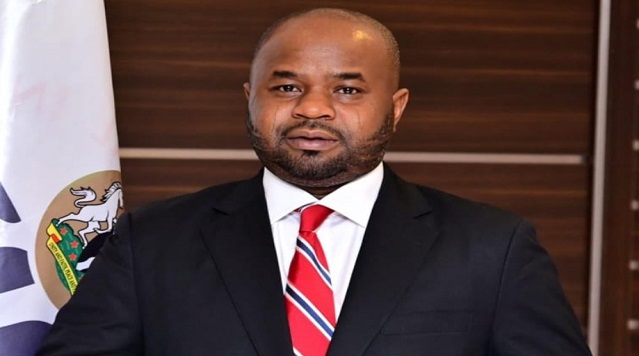News
Google to Train 6000 Africans on Digital Journalism

Google announced its support for a Digital Journalism initiative that will see 6 000 African journalists trained in data journalism skills by the end of February 2018.
Google News Lab and the World Bank are working with Code For Africa to empower journalists in Africa by giving them the necessary support to better understand the Web and how to use the tools available to them online.
The Code For Africa Digital Journalism initiative will take place over the next 9 months (to February 2018) and see 6 000 journalists trained in 12 major African cities – Abuja, Lagos, Nairobi, Cape Town, Johannesburg, Durban, Casablanca, Dakar, Freetown, Dar es Salaam, Kampala, and Yaounde.
Code For Africa is a data journalism and civic technology initiative operating across Africa that trains and supports journalists and civic activists to better understand and use web tools for news reporting and storytelling.
Training will take place in three formats.
Beginning June 15, in-person training sessions will be held in the cities mentioned above. In each city, the organizers will conduct trainings in 3 newsrooms and trainings will be held twice a month for the duration of the initiative.
Beginning August, a massive open online course (MOOC) will be made freely available online, covering a range of web concepts and practices for digital journalists.
They will also hold monthly study group meetups in collaboration with Hacks/Hackers to provide more focused, in-person instruction. Monthly meetings will take place in Cameroon, Kenya, Morocco, Nigeria, Senegal, Sierra Leone, South Africa, Tanzania and Uganda.
Commenting on the initiative, Daniel Sieberg, head of Training & Development at Google News Lab said: “The web and digital tools present an interesting array of options for journalists, but learning how to use these tools can be a daunting task for many media people. While the global news industry faces a knowledge challenge with regards to digital tools, Africa, by virtue of its non-digital education systems, faces even greater odds in the battle for digital integration in news and storytelling. In Nigeria for instance, only a few of the journalism institutions offer training programs that focus on Web tools, and many top news organisations lose out on stories due to their inability to utilise newer and more engaging digital techniques.”
In 2016, Google announced its commitment to train one million African youth within one year to help them create and find jobs via the Web.
“With the Digital Journalism initiative we want to contribute to the growth of Africa’s news and media ecosystem by training present and future practitioners on how to employ existing tools to tell stories, and support them to create locally-relevant tools that will reshape how Africans consume news,” he added.
Google’s innovative search technologies connect millions of people around the world with information every day.
Founded in 1998 by Stanford Ph.D. students Larry Page and Sergey Brin, Google today is a top web property in all major global markets.
Google’s targeted advertising program provides businesses of all sizes with measurable results, while enhancing the overall web experience for users.
Google is headquartered in Silicon Valley with offices throughout the Americas, Europe, Africa and Asia.
News
Trump Says He Made no Mistake Sharing Video Depicting Obamas as Apes

United States President Donald Trump has said he made no mistake for a video briefly shared on his official Truth Social account that depicted former President Barack Obama and former First Lady Michelle Obama as apes.

Former President Barack Obama
Speaking late Friday to reporters accompanying him aboard Air Force One, Trump insisted he made no mistake by sharing the video and does not need to apologise.
“I didn’t make a mistake,” he said.
Trump explained that he did not watch the entire clip before it was posted.
“I didn’t see the whole thing. I looked at the first part, and it was really about voter fraud in the machines, how crooked it is, how disgusting it is.
“Then I gave it to the people. Generally, they look at the whole thing. But I guess somebody didn’t,” he said.
When asked directly whether he condemned the video’s content, Trump replied, “Of course I do.”
The video, which was posted late Thursday, pushed a conspiracy theory about voting machines used during the 2020 election and included a racist depiction of the Obamas.
It remained on Trump’s Truth Social account for about 12 hours before being deleted on Friday morning, following widespread bipartisan calls for its removal.
The White House initially defended the post in an emailed statement to reporters on Friday morning by Karoline Leavitt, Press Secretary,.
She said, “This is from an internet meme video depicting President Trump as the King of the Jungle and Democrats as characters from The Lion King.”
Leavitt added, “Please stop the fake outrage and report on something today that actually matters to the American public.”
Hours after the statement was issued, the video was removed from Trump’s official Truth Social account.
News
Orya, Ex-NEXIM MD Jailed 490 Years for N2.4Bn Fraud

Robert Orya, former managing director, Nigerian Export-Import Bank, (NEXIM), has been sentenced to a cumulative 490 years’ imprisonment over a N2.4 billion fraud, following his conviction by a Federal Capital Territory (FCT) High Court in Abuja.

The conviction was secured by the Economic and Financial Crimes Commission (EFCC). Justice F. E. Messiri sentenced Orya to 10 years’ imprisonment on each of the 49 counts brought against him, with the sentences running cumulatively.
Orya, who headed NEXIM Bank between 2011 and 2016, was prosecuted by Samuel Ugwuegbulam, EFCC counsel.
The anti-graft agency accused him of fraudulently diverting funds belonging to the bank—charges the court held were proven beyond reasonable doubt.
Delivering judgment, Justice Messiri ruled that the prosecution successfully established its case, finding the former bank chief guilty on all 49 counts of fraud.
The conviction has been widely linked to the renewed momentum within the EFCC under Mr. Ola Olukoyede, its Chairman, whose leadership has seen a reinvigoration of the agency’s resolve to pursue high-profile corruption cases to their logical conclusion.
Since assuming office, Olukoyede has repeatedly vowed that no individual, regardless of status or past influence, would be shielded from accountability.
Under his stewardship, the EFCC has intensified the prosecution of complex financial crimes, particularly cases involving public institutions and large-scale diversion of funds.
Observers say the sentencing of a former chief executive of a government-owned bank underscores the EFCC’s determination to restore public confidence in the anti-corruption fight and sends a strong signal that financial misconduct will attract severe consequences.
The judgment is regarded as one of the most significant convictions secured against a former banking chief in recent years, reinforcing the agency’s resolve to clamp down on economic crimes within Nigeria’s financial sector.
During his tenure at NEXIM Bank, Orya was initially credited with efforts to reposition the institution to support non-oil exports and improve its financial standing after earlier setbacks.
However, his administration later became enmeshed in controversies, including allegations of loan disbursement irregularities and procedural abuses.
The case, which culminated in Thursday’s judgment, centred on findings that Orya diverted public funds estimated at N2.4 billion—offences that ultimately led to his conviction and lengthy prison sentence.
News
NRS Chairman Outlines Ways Nigeria can Move from Potential to Economic Prosperity

Zacch Adedeji, chairman of the Nigeria Revenue Service (NRS) has called for a paradigm shift in dependence on raw material exports to one that embrace ideas, innovation and the production of complex products as a pathway to sustainable economic growth and national prosperity.

Adedeji made the submission while delivering the maiden distinguished personality lecture of the Faculty of Administration, Obafemi Awolowo University (OAU), Ile-Ife, Osun State, on Thursday.
A statement by his Special Adviser on Media, Dare Adekanmbi, said Adedeji, in the lecture entitled, ‘From Potential to Prosperity: Export-led Economy’, stressed the need to rethink growth through the lens of complexity by not just producing more of the same stuff.
He lamented that Nigeria possesses a high-tech oil sector and low-productivity informal sector as well as lacking “the vibrant, labour-absorbing industrial base that serves as a bridge to higher complexity.”
The NRS boss stated that Nigeria witnessed stagnation in its exportation drive for three decades between 1998 to 2023, and only added six new products in its export basket list between 2008 and 2023.
“Because of our current position, the Harvard Atlas concluded that we are positioned to take advantage of very few opportunities to diversify using what we already know.”
Adedeji urged Nigeria to learn from the world by comparative study of success and failure like Vietnam, Bangladesh, Indonesia, South Africa and Brazil.
“We are not just looking at numbers in a vacuum; we are looking at the strategic choices made by nations like Vietnam, Indonesia, Bangladesh, Brazil, and South Africa over the same twenty-five-year period. While there are many ways to under perform, the path to success is remarkably consistent: it is defined by a clear strategy to build economic complexity.
“When we put these stories together, the divergence is clear. Vietnam used global trade to build a resilient, complex economy, while the others remained dependent on natural resources or a single low-tech niche.
“There are three big lessons here for us in Nigeria as we think about our roadmap. First, avoiding the resource curse is necessary, but it is not enough. You need a proactive strategy to build productive capabilities.
“Vietnam’s success came from integrating itself into Global Value Chains (GVCs). They positioned themselves as the assembly hub for the world’s electronics, importing high-tech parts and exporting finished products.
“This allowed them to “borrow” technology and management skills from abroad to build their own know-how.
“Nigeria, on the other hand, remains a supplier of raw materials to these chains, not an active participant within them. We must realise that productive capabilities are not permanent. The examples of South Africa and Brazil show us that you can actually lose your industrial edge if you are not careful. Over-reliance on the easy path of resource extraction creates economic and political incentives that crowd out the difficult, long-term work of building an industrial base.”
He added that for Nigeria, which is at an even earlier stage of development and even less diversified than these nations, the warning is stark.
“Relying solely on our natural endowments isn’t just a path to stagnation; it’s a path to regression. The global economy increasingly rewards knowledge and complexity, not just what you can dig out of the ground. If we want to move from potential to prosperity, we must stop being just a source of raw materials and start being a source of ideas, innovation, and complex products.
He added that President Bola Tinubu has already begun the difficult work of rebuilding the economy to ensure collective knowledge to innovate, produce and build a resilient economy.
“The journey from potential to prosperity is not a short one, but with the right map and the right resolve, it is a journey we can finally complete,’ he added.

 E-Financial2 days ago
E-Financial2 days agoMajority of Nigerians do not Trust Govt with Tax Revenue – SBM

 Telecom2 days ago
Telecom2 days agoMoMo PSB, SMEDAN Forge Pact to Digitise Nigeria’s SMEs

 E-Business2 days ago
E-Business2 days agoNDPC Commits to Balancing Data Privacy, Protection Information

 News2 days ago
News2 days agoLeadway Assurance Commences Use of Fintech in Insurance Product Distribution

 E-Financial2 days ago
E-Financial2 days agoWhy FirstBank Wrote off N748Bn Bad Loan – Otedola

 Telecom2 days ago
Telecom2 days agoMTN Ignites Teacher Revolution: 5,000 Digitally Armed for Phase Two

 E-Financial2 days ago
E-Financial2 days agoUnity Bank Unwraps Mobile App to Deepen Digital Banking Experience

 General News2 days ago
General News2 days agoFG Partners World Bank, AfDB on Climate Action















